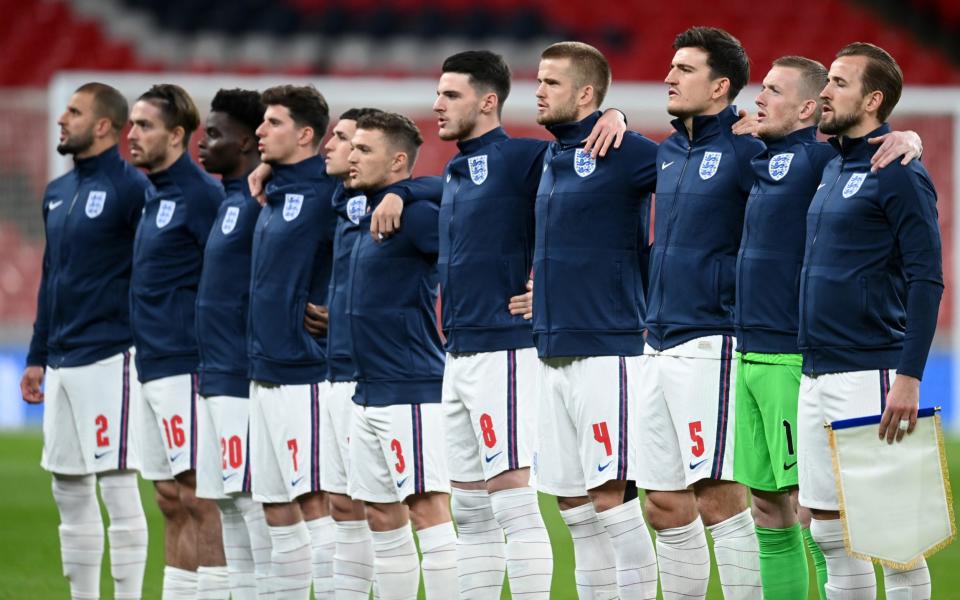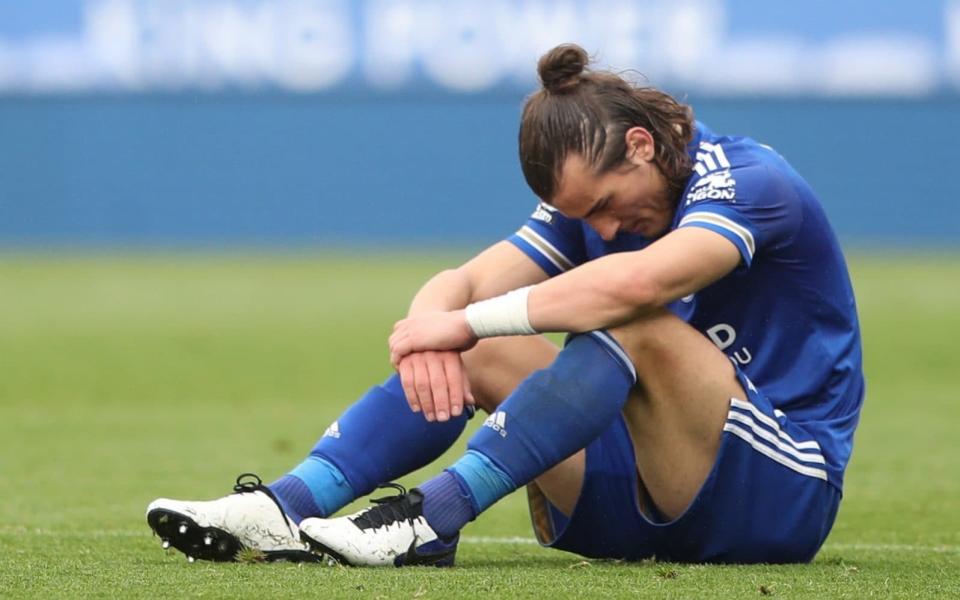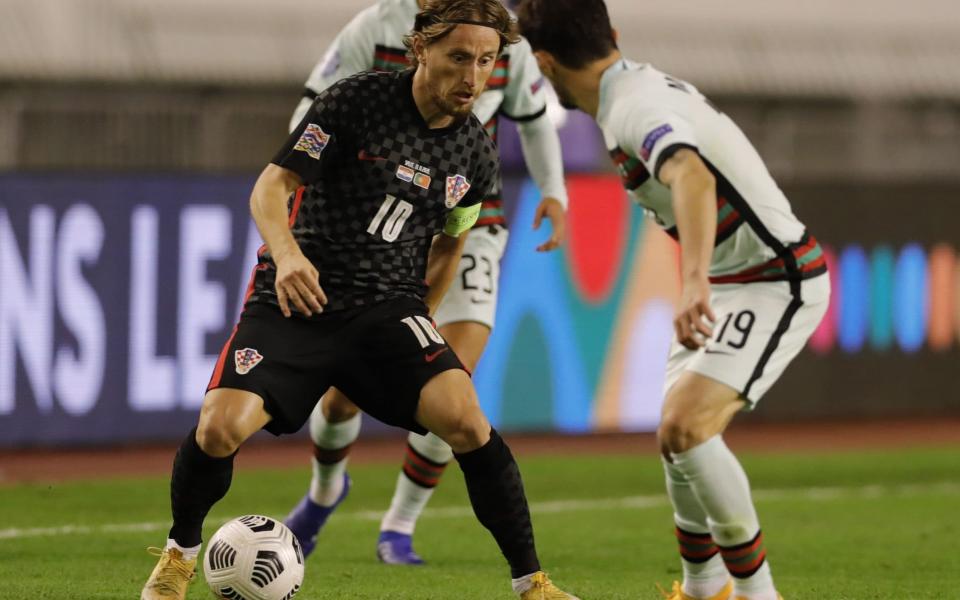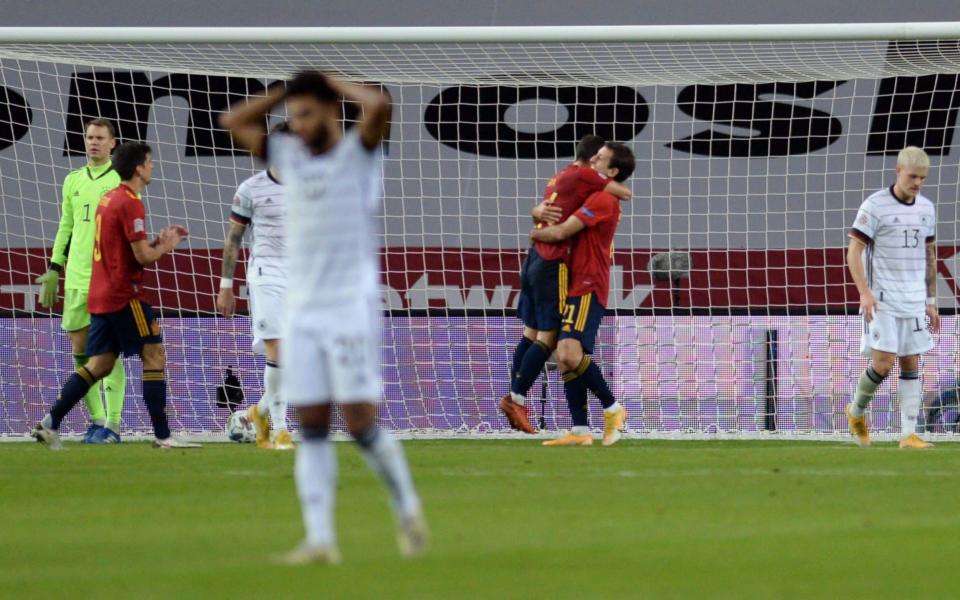Euro 2020 qualifiers and Nations League finalists ranked: Whose stock is rising and whose is falling?

With the schedule for next summer's European Championships now finalised, we assess where each nation stands in the pecking order in our power rankings.
Think we are wrong? Tell us which team you think should be top in the comments.
24th: North Macedonia
Qualified for their first major tournament since independence 27 years ago with a play-off victory over Georgia, but will be considered rank outsiders. Won only four of 10 games in qualification but earned a shot at the play-offs via the Nations League as one of the group winners from League D. Goran Pandev, Champions League winner with Inter under Jose Mourinho, is still going strong at 37. Will face Holland, Ukraine and Austria in next summer's tournament.
23rd: Finland
Qualified for their first Euros automatically with six wins from 10 games in an admittedly soft group. Finland's presence at the tournament will mean 34 of Uefa’s 55 national association members will have made at least one Euros appearance. Teemu Pukki was top goalscorer in qualifying, where it took a late Jorginho penalty for Italy to beat them 2-1. They have also recorded home and away victories against the Republic of Ireland in the Nations League and toppled France in Paris in a friendly.
22nd: Hungary
One of the stories of the November international break, Hungary qualified thanks to wonderkid Dominik Szoboszlai's last-minute strike against Iceland. The 20-year-old Red Bull Salzburg midfielder has been linked with a host of Europe's top clubs. Hungary are managed by former Italy defender Marco Rossi. Struggled for goals in qualification with just eight in eight games.
21st: Scotland
European football's penalty shootout specialists, Scotland are through to their first major tournament since the 1998 World Cup. Steve Clarke was a man under pressure only a few months ago with his tactics frequently questioned, but Scotland's performance slowly improved as the campaign progressed. Lack of depth is a handicap, so Scotland will be keeping everything crossed that key players John McGinn, Andy Robertson and Kieran Tierney arrive in one piece. A negative goal difference across 10 qualification games is evidence of their underdog status. Facing England at Wembley will be a momentous occasion.

20th: Slovakia
Booked their place at next summer's tournament with an extra-time win over Northern Ireland in Belfast and are still reliant on the qualities of attacking midfielder Marek Hamsik. Reaching the last-16 in 2016 was their best ever finish at the European Championships. Finished below Wales and Croatia in their qualification group.
19th: Wales
Injury and Covid-19 has made it difficult for Wales to get their best players on the pitch with Gareth Bale and Aaron Ramsey frequent absentees. They do however, have an exciting crop of young players coming through: Ethan Ampadu, Joe Rodon, David Brooks and Neco Williams. Unbeaten in their last five internationals, keeping four clean sheets. Delighted neutrals at Euro 2016 when they reached the semi-finals, when they were knocked out by Portugal.
18th: Czech Republic
The Czechs playing tournament games in England will bring back memories of Karel Poborsky's scooped goal at Euro '96, and they were the only team to beat England in qualification. West Ham midfielder Tomas Soucek offers goal threat and aerial power and Bayer Leverkusen striker Patrik Schick is another player to keep an eye on.
17th: Austria
Were very disappointing at the 2018 World Cup, but are back at another major tournament where they will be looking to David Alaba and Marko Arnautovic for inspiration. Benefited from a soft qualification group containing no heavyweight nations when they finished second to Poland.
16th: Sweden
Reached the quarter-finals of the 2018 World Cup when England got the better of them and are always competitive at tournaments. Managed by Janne Andersson, Sweden topped a Nations League group including Russia and Turkey.
15th: Turkey
Turkey have qualified for five of the last seven Euros, and qualified this time around with an outstanding defensive record, conceding only three goals in 10 matches. Their first-choice centre-back partnership of Juventus' Merih Demiral and Leicester's Caglar Soyuncu will be one of the most impressive in the competition. Took four points from two games against France in qualification.

14th: Ukraine
A romantic tale with legendary striker Andriy Shevchenko in charge and Ukraine were unbeaten in qualification. They have struggled since their place at Euro 2020 was secured though, losing five of their last six internationals and shipping seven against France and four against Spain. He might not be in David Moyes' plans at West Ham, but Ukraine still rely Andriy Yarmolenko for potency. Only Shevchenko has more goals for his country.
13th: Switzerland
Qualified with an impressive goal difference of +13 and finished above Denmark and Republic of Ireland. Are tournament regulars, with familiar names to Premier League fans such as Granit Xhaka and Xherdan Shaqiri. Switzerland have successfully negotiated every group stage under manager Vladimir Petković but are yet to win a knockout match.
12th: Russia
Have struggled to replace an ageing squad but did sail through qualifying, winning eight of 10 matches with Artem Dzyuba still banging in the goals. Much of the creative burden will rest on the shoulder's of 24-year-old attacking midfielder Aleksandr Golovin.
11th: Poland
Eased through qualification with eight wins from 10 games, helped by Robert Lewandowski having the season of his life in 2019-20. Krzysztof Piątek is another striker capable of chipping in with goals. After the disappointment of their showing on home soil in 2012, Poland were within touching distance of the last four in 2016 when they were knocked out by Portugal on penalties.
10th: Denmark
Another team who were unbeaten in qualification, but were more solid than spectacular with four wins and four draws. Took four points from England in their two Nations League games but are still reliant on Christian Eriksen. RB Leipzig Yussuf Poulsen and Barcelona's Martin Braithwaite will also need to chip in with end product.
9th: Croatia
Reaching the World Cup final in 2018 helped midfielder Luka Modric win the Ballon d'Or but while Croatia remain more than capable, there is a sense of generation of players reaching the end of their careers. Still made it through qualification with ease but have not beaten a major nation since a Nations League win over Spain in November 2018. Josip Brekalo is an exciting, young wide player to keep and eye on.

8th: Portugal
The defending champions have a greater variety of threats these days with the likes of Bruno Fernandes and Joao Felix supporting Cristiano Ronaldo. Recently kept five consecutive clean sheets in a row but did fail to score in two Nations League matches against France. Fernando Santos, who led them to glory in 2016, is still the man in charge.
7th: Italy
Won 10 consecutive matches in qualifying, scoring 37 goals in the process, and are through to the Nations League finals. Roberto Mancini's achievements at club level put him a level above many of the managers on the international scene. Technical midfielder Nicolo Barella is the jewel in the heart of their team.
6th: Holland
Rocked by the loss of Virgil van Dijk, who still hopes to regain full fitness before next summer's European Championships, and Ronald Koeman's departure to Barcelona. Frank De Boer's managerial record means they deserve to be marked down slightly, and they are appearing at their first tournament since 2014. A spine of Van Dijk, Matthijs de Ligt, Frenkie de Jong, Georginio Wijnaldum and Memphis Depay is impressive, although they are very reliant on Depay for goals.
5th: Germany
Still reeling from the heaviest defeat in their competitive history against Spain with Joachim Low's much vaunted rebuild hitting the rocks. Players who were jettisoned after the 2018 World Cup debacle - the likes of Jerome Boateng and Thomas Muller - rediscovered form at club level but have been ignored. Still possess an outstanding array of young talent - Kai Havert, Leroy Sane and Timo Werner among them - but there is a feeling things have gone stale under Low. Struggling for defensive stability.

4th: England
Have the advantage of playing most of their games on home soil, evoking memories of 1966 and 1996, but are still a team reaching for the ideal formula. With Jadon Sancho, Raheem Sterling, Harry Kane, Marcus Rashford, Jack Grealish, Mason Mount, Phil Foden and James Maddison to choose from, it has the potential to be the most vibrant, dexterous and creative England team in decades. The question for Gareth Southgate is how many of those players he can pick without compromising some unconvincing defensive personnel.
3rd: Spain
The 6-0 win in Germany was Spain's most impressive performance in many a year, with Luis Enrique trying to encourage more directness in their attacking play. Players such as Mikel Oyarzabal, Ferran Torres and potentially Ansu Fati can breathe new life into a team which looked like it was reaching the end of an era. Can Spain's defence resist against the toughest opponents?
2nd: France
The world champions do not always sparkle under Didier Deschamps but they did get the job done in the Nations League with recent victories over Portugal, Sweden and Croatia. Anthony Martial and Marcus Thuram are likely to be more prominent players in an attack that still relies on Antoine Griezmann and Kylian Mbappe. France's depth of talent remains incredible and could well prove the difference.
1st: Belgium
The No 1 ranked team in the world and marginally the bookmakers' favourites, time is running out for this Belgium generation to finally land a piece of silverware. There is a sense they missed their chance in the 2018 World Cup semi-final when, despite dominating possession, they did not really lay a glove on France. Youri Tielemans is a player growing in stature and could be a star of the tournament.

 Yahoo Sport
Yahoo Sport 





































